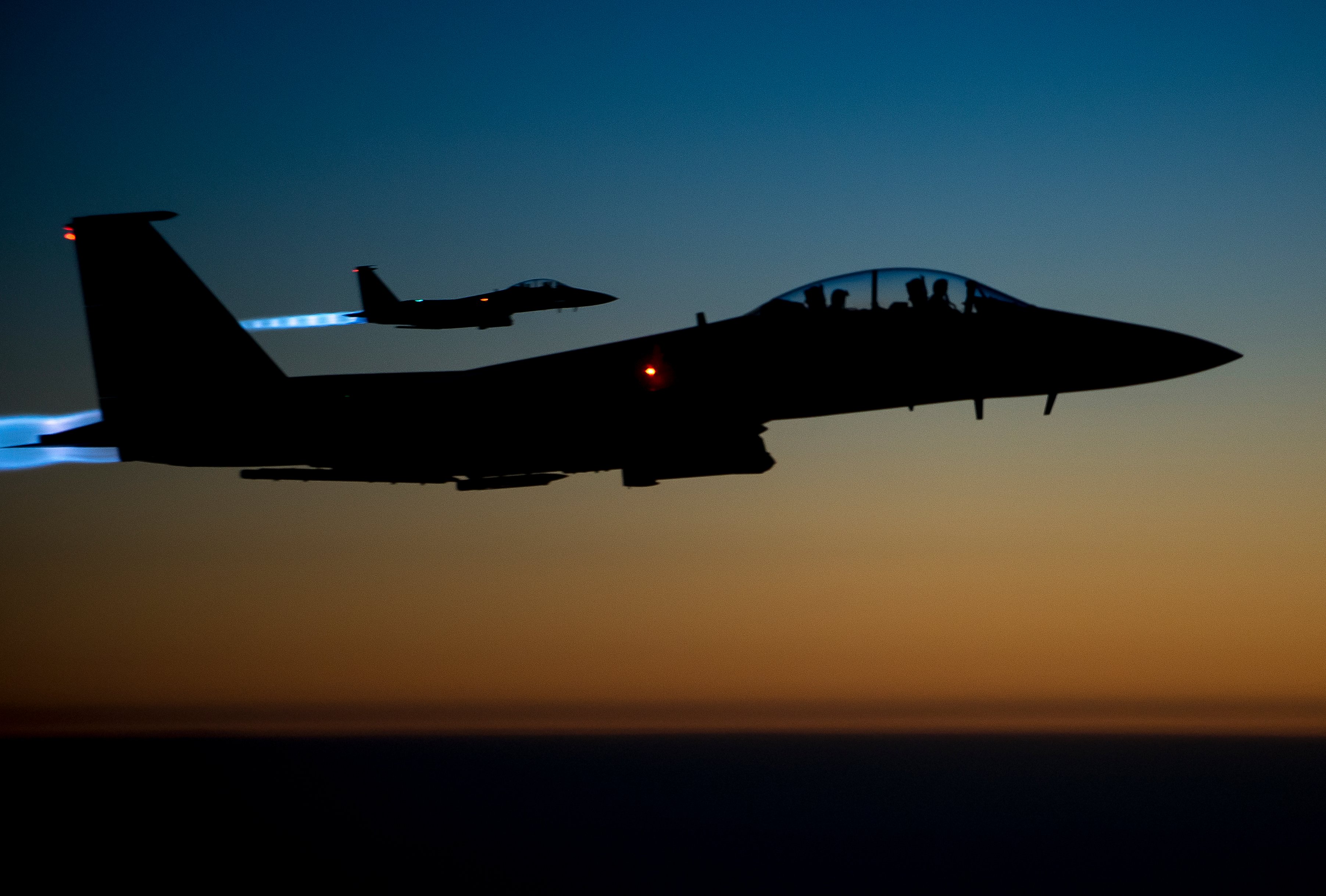UPDATED: House Bill Silent on Space Force, Sets Up Debate on Nuke Modernization
Posted on

F-15E Strike Eagles return from the first strikes on Islamic State targets in Syria, 2014.
[The story has been updated with comments Rep. Adam Smith made Monday morning.]
CAPITOL HILL: House Democrats declined to include language standing up a new Space Force in their version of the 2020 defense policy bill, though one staffer admitted they “expect an amendment” to be added once the bill goes up for debate before the House Armed Services Committee this week.
The bill, which authorizes $733 billion in defense spending for the coming fiscal year, comes in $17 billion lower than the $750 billion requested by the Trump administration which was supported in the Senate NDAA — a bill that also called for establishing a new Space Force.
HASC chairman Adam Smith told reporters Monday that $733 billion is the number the Pentagon had been planning until the last minute, when an extra $17 billion was added by the White House. Chairman of the Joint Chiefs Gen. Joseph Dunford had previously testified that $733 would meet the Pentagon’s needs.
“I am genuinely concerned, and I think we have enough history with the Pentagon to see it in the past, when they’ve been given more money than perhaps they expected, there is a lot of inefficiency and waste that follows,” Smith said.
Asked if the Pentagon’s funding will meet inflation, Smith said his bill increases pay for troops, while funding all of the military’s major modernization initiatives. “Not everything the Pentagon does is created equal. Not everything the Pentagon does needs to grow by 3 to 5 percent.”
“733 is a good number,” Smith added. “I think that is sufficient. By giving [the Pentagon] more, I think we encourage inefficiency.”
But the document, the first since Democrats took back the House in the 2018 midterm elections, might not go as far as some might have hoped.
Smith, who has harshly criticized the Trump administration’s plans to upgrade the nation’s nuclear triad, leaves most nuclear funding intact while calling for a variety nuclear-related studies. The proposed bill calls for an annual report on nuclear modernization where the DoD would have to “quantify funding for nuclear modernization within the Department of Defense as a percentage of the military services’ and the Department’s acquisition budgets.” The bill also requires “a long-term plan for nuclear weapons modernization.”
Significantly, however, the proposed legislation abolishes the Navy’s planned submarine-launched low-yield nuclear missile, though the Senate is certain to put the weapon back into the bill.
It also requires an independent study on the policy of no-first use of nuclear weapons, and another study on extending the life of Minuteman III intercontinental ballistic missiles to 2050.
The bill demands the Pentagon provide a report on the Intermediate-Range Nuclear Forces Treaty and the New START Treaty, limiting certain funds until the report is provided. The legislation also leaves out any language that would implement a no-first-use nuclear weapons policy as Smith had previously advocated.
When it comes to increases in military hardware, the bill includes $941 million to buy eight new F-15EX fighters, a cut of $109 million from the Pentagon request, but provides funding for 12 additional F-35A Joint Strike Fighters and greenlights $22.3 billion for Navy shipbuilding, including 11 new warships, a cut of $1.5 billion from the request.
The bill would also withhold twenty percent of the Defense Secretary’s travel budget until acting secretary Patrick Shanahan finally delivers a long-overdue report on US military operations in Niger. The report, according to the 2019 NDAA, was due in February. Last week, Shanahan signed off on a new review of the 2017 ambush that killed four American soldiers, declining to issue any additional punishments to commanders who planned and ordered in the mission.
Subscribe to our newsletter
Promotions, new products and sales. Directly to your inbox.
